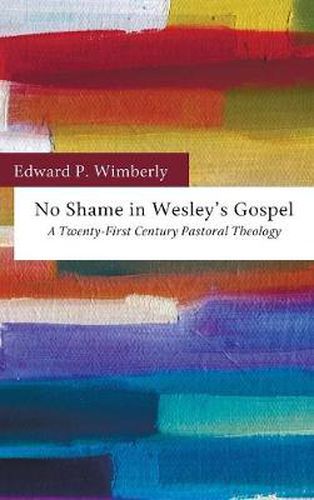Readings Newsletter
Become a Readings Member to make your shopping experience even easier.
Sign in or sign up for free!
You’re not far away from qualifying for FREE standard shipping within Australia
You’ve qualified for FREE standard shipping within Australia
The cart is loading…






This title is printed to order. This book may have been self-published. If so, we cannot guarantee the quality of the content. In the main most books will have gone through the editing process however some may not. We therefore suggest that you be aware of this before ordering this book. If in doubt check either the author or publisher’s details as we are unable to accept any returns unless they are faulty. Please contact us if you have any questions.
As an African American who was a senior pastor in both white and black churches between 1966 and 1974, Edward Wimberly encountered shame as the feeling of being unloved and being unlovable primarily when his parishioners and counselees experienced a loss of a loved one. Grief was the dominant psychological category for talking about loss in those days, and the feeling of shame of being abandoned and resulting in feelings of being unloved were described as temporary. However, in the middle 1980s pastoral theologians began to recognize shame as a dominant psychological and spiritual long lasting experience that needed to be addressed. Thus, pastoral counselors and pastoral theologians began to explore psychological object relations theory, self-psychology, and the psychology of shame to understand the persistence of the experience of shame. Today shame as the feeling of being unloved and unlovable is a major experience of many modern people given the nature of the loss of relational connections and close-knit communities. Many psychologies are surfacing focusing on cultural narcissism or selfish love, the cult of self-admiration which is replacing self-actualization, and the equating of wealth and social status with being loved. Growing up in the Methodist tradition in an African American church, Wimberly was sensitized to John Wesley’s small group experience hearing about the class meetings. Moreover, he had been exposed to the use of small groups in Zimbabwe, Africa in 1998 based on African Methodists attempts to recover the village which was disappearing on account of technology, industrialization, and the colonialism’s destruction of the family.Thus, based on the author’s family of origin community’s fascination with Wesley’s small group and witnessing this same phenomenon in Africa, Wimberly decided to explore Wesley’s cell group practical theology for its contribution to twenty-first century ministry to people who could be classified as relational refugees.
$9.00 standard shipping within Australia
FREE standard shipping within Australia for orders over $100.00
Express & International shipping calculated at checkout
This title is printed to order. This book may have been self-published. If so, we cannot guarantee the quality of the content. In the main most books will have gone through the editing process however some may not. We therefore suggest that you be aware of this before ordering this book. If in doubt check either the author or publisher’s details as we are unable to accept any returns unless they are faulty. Please contact us if you have any questions.
As an African American who was a senior pastor in both white and black churches between 1966 and 1974, Edward Wimberly encountered shame as the feeling of being unloved and being unlovable primarily when his parishioners and counselees experienced a loss of a loved one. Grief was the dominant psychological category for talking about loss in those days, and the feeling of shame of being abandoned and resulting in feelings of being unloved were described as temporary. However, in the middle 1980s pastoral theologians began to recognize shame as a dominant psychological and spiritual long lasting experience that needed to be addressed. Thus, pastoral counselors and pastoral theologians began to explore psychological object relations theory, self-psychology, and the psychology of shame to understand the persistence of the experience of shame. Today shame as the feeling of being unloved and unlovable is a major experience of many modern people given the nature of the loss of relational connections and close-knit communities. Many psychologies are surfacing focusing on cultural narcissism or selfish love, the cult of self-admiration which is replacing self-actualization, and the equating of wealth and social status with being loved. Growing up in the Methodist tradition in an African American church, Wimberly was sensitized to John Wesley’s small group experience hearing about the class meetings. Moreover, he had been exposed to the use of small groups in Zimbabwe, Africa in 1998 based on African Methodists attempts to recover the village which was disappearing on account of technology, industrialization, and the colonialism’s destruction of the family.Thus, based on the author’s family of origin community’s fascination with Wesley’s small group and witnessing this same phenomenon in Africa, Wimberly decided to explore Wesley’s cell group practical theology for its contribution to twenty-first century ministry to people who could be classified as relational refugees.